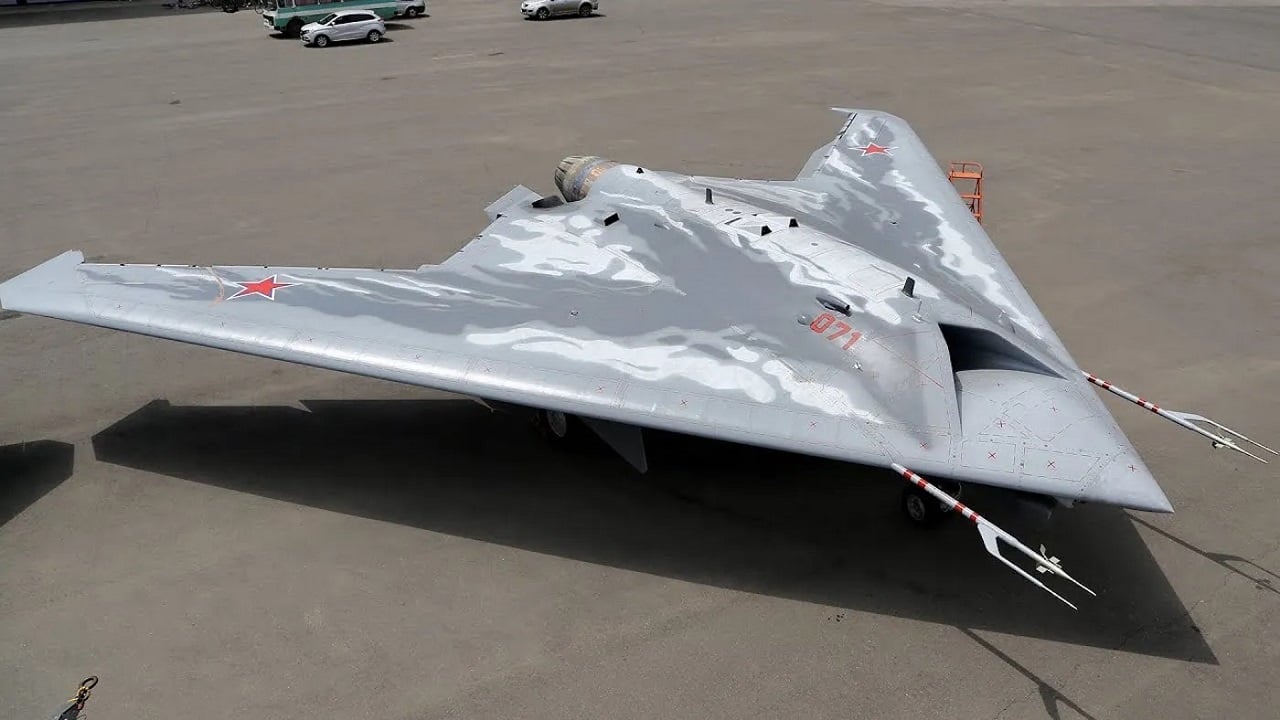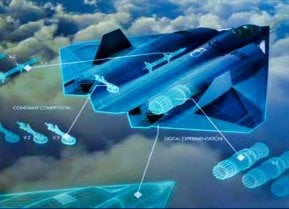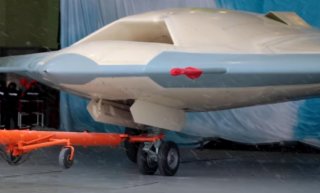Sukhoi S-70 Okhotnik-B Hunter: Russia’s Next-Generation Combat Drone Has Arrived
Russia’s S-70 Okhotnik (Hunter) drone, a sixth-generation stealth UAV developed by Sukhoi and MiG, represents a significant leap in unmanned warfare technology.
Summary and Key Points: Russia’s S-70 Okhotnik (Hunter) drone, a sixth-generation stealth UAV developed by Sukhoi and MiG, represents a significant leap in unmanned warfare technology.

-Incorporating advanced AI and technologies from the Su-57 fighter jet, the S-70 boasts a range of up to 6,000 kilometers and can carry various bombs and missiles. Its ability to take off and land autonomously and perform complex missions highlights its potential to redefine aerial combat.
-As Russia responds to the lessons learned from the Ukraine war, the S-70 Hunter is poised to play a crucial role in future military strategies.
Russia’s Innovation in Drone Warfare: The S-70 Hunter and the Future of Combat
It has been said that war does one of two things to the combatants: it either completely destroys them or strengthens them. In the case of Russia, their war against Ukraine is helping Moscow adapt to the new way of warfare.
One of the key adaptations for Russia has been acknowledgement that drone warfare is here with us forever. Unmanned aerial vehicles have completely reshaped the world of warfare.
For instance, Ukraine has heroically mastered drone warfare and used a variety of UAVs against Russian targets.
While everyone is familiar with the way in which the NATO-provided Javelin anti-tank weapons have been used effectively by Ukraine against Russia’s massive tank arsenal, fewer seem to understand that, notably in the latter half of the Ukraine War, some of the worst losses for Russia’s tank force have come at the hands of Ukrainian drones.
More recently, it’s believed that a Ukrainian drone may have caught a Russian fifth-generation warplane, a Su-57, by surprise as it was on a Russian runway and destroyed the expensive, complex warplane before it could defend itself.
Rather than be defeated by these developments, Russian defense planners have taken note and started to focus their efforts on building next-generation combat drones so as to never again be caught-off-guard the way they were by the initial resistance of Ukraine’s drone-wielding defenders.
Russia Gives Birth to the S-70 Hunter Drone
One of the new unmanned systems that the Russians are developing is the S-70 Okhotnik (Hunter) stealth heavy unmanned combat aerial vehicle. This unmanned beast is being developed by Sukhoi and Russian Aircraft Corporation MiG as a sixth-generation aircraft project.
The drone is based on the earlier Mikoyan Skat, designed by MiG, and encompasses some technologies of the Sukhoi Su-57 fighter jet.
The first flight-ready model of Russia's upgraded S-70 Okhotnik (Hunter) heavy combat drone is on its way to the military for testing, with fielding expected in 2024. Developed by Chkalov's Novosibirsk aviation plant in western Siberia, the drone is equipped with a flat nozzle to increase its stealth capability.
The Russian Ministry of Defense has reportedly ordered three new prototypes of the S-70 Okhotnik, which will serve as a wing drone for the fifth-generation fighter, the SU-57, but can also be operated from the ground. The first prototype of the S-70 Okhotnik was completed in 2018, and the second and third prototypes are expected to be completed in 2024.
The Capabilities
Russia’s S-70 Okhotnik is intended to be launched from a runway, similar to manned aircraft. It will be able to take off and land autonomously, with the help of an advanced autopilot system.
The S-70 Okhotnik is equipped with technologies "surpassing a few foreign analogues by a number of parameters," according to Russian Deputy Defense Minister Alexey Krivoruchko. It is expected to have a range of up to 6,000 kilometers, thanks to its Russian-made engine, the Al-41F1, which is also used on the Su-57 and the Checkmate aircraft.

Russia’s S-70 Okhotnik will be piloted remotely by a human operator, but it will also have an advanced artificial intelligence system that will enable it to fly autonomously under operational circumstances.
This AI system will allow the drone to dynamically react to changing circumstances and execute its pre-programmed mission.
The S-70 Okhotnik is expected to carry a variety of weapons, including 250 and 500 caliber bombs, guided and unguided bombs up to 1,000 kg, guided glide bombs such as the Drel cluster bomb developed for the Su-57, as well as air-to-surface and air-to-air missiles. It will also be able to designate targets for other aircraft using its advanced sensors.
Sixth-Generation
We live in a crazy world in which many of the great powers, having being fielded fifth-generation warplanes, are obsessed with building a sixth-generation bird. The Americans have the most complex concept of a manned, sixth-generation stealth warplane being but one of several aircraft flying together, all linked in a complex cloud computing network architecture known as the loyal wingman concept.
Beijing is also developing its own sophisticated system of systems sixth-generation warplane concept. It, too, will be more than just an advanced fighter jet and will integrate a drone swarm and attendant software.
For its part, Russia,says their S-70 “Hunter” is a sixth-generation drone. And as I have written in these pages recently, the likelihood that the Americans will get their sixth-generation NGAD as envisioned is low, given the economic constraints as well as the technological complications stemming from this technology.
But a sixth-generation stealth drone? That is quite feasible. And the Russians have figured that part out and are now dutifully working to produce such a craft and to outnumber the Americans (and Chinese) with it.
That is how the Ukraine War has forced innovation and uniqueness upon the otherwise sclerotic post-Soviet Russian Federation.
Author Experience and Expertise: Brandon J. Weichert
Brandon J. Weichert, a National Interest national security analyst, is a former Congressional staffer and geopolitical analyst who is a contributor at The Washington Times, the Asia Times, and The-Pipeline. He is the author of Winning Space: How America Remains a Superpower, Biohacked: China’s Race to Control Life, and The Shadow War: Iran’s Quest for Supremacy. His next book, A Disaster of Our Own Making: How the West Lost Ukraine, is due October 22 from Encounter Books. Weichert can be followed via Twitter @WeTheBrandon.
All images are Creative Commons or Shutterstock.
From the Vault
Russia Freaked Out: Why the U.S. Navy 'Unretired' the Iowa-Class Battleships
Battleship vs. Battlecruiser: Iowa-Class vs. Russia's Kirov-Class (Who Wins?)


